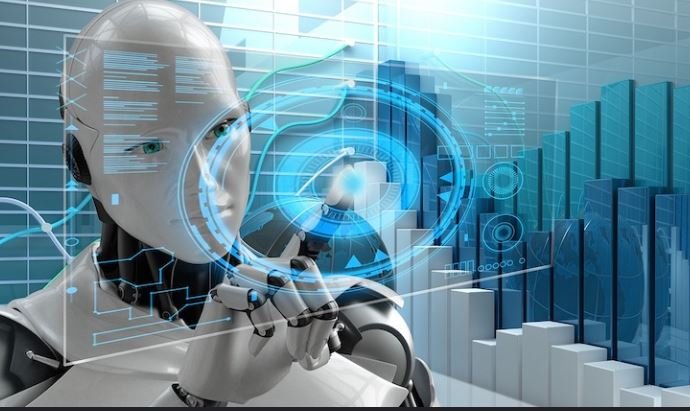How artificial intelligence is shaping the future of e-commerce represents a significant shift in the way businesses interact with consumers. AI is enhancing various aspects of e-commerce, including customer experience, marketing strategies, and operational efficiency. This post explores how AI is revolutionizing the e-commerce landscape and what it means for businesses and shoppers alike.

Personalized Shopping Experiences
Artificial intelligence is shaping the future of e-commerce by offering highly personalized shopping experiences. AI technologies analyze customer data to tailor recommendations and improve user interactions.
Firstly, recommendation engines use AI to suggest products based on browsing history, purchase behavior, and user preferences. For example, if a customer frequently buys running shoes, AI can recommend related items like athletic wear or fitness equipment, increasing the chances of additional sales.
Secondly, chatbots and virtual assistants provide real-time customer support. These AI-driven tools can answer queries, help with product selection, and resolve issues quickly, enhancing the overall shopping experience. Chatbots learn from interactions to offer more accurate and relevant responses over time.
Thirdly, dynamic pricing models powered by AI adjust prices based on demand, competition, and customer behavior. This allows e-commerce businesses to optimize pricing strategies, offer personalized discounts, and improve sales while maintaining competitive pricing.
Optimizing Supply Chain and Inventory Management
Artificial intelligence is shaping the future of e-commerce by streamlining supply chain and inventory management. AI technologies enable businesses to operate more efficiently and reduce operational costs.
Firstly, predictive analytics help forecast demand for products, allowing companies to manage inventory levels more effectively. By analyzing historical sales data and market trends, AI can predict which products are likely to be in high demand, reducing the risk of stockouts and overstocking.
Secondly, automated warehousing and logistics use AI to manage inventory, process orders, and optimize delivery routes. AI-driven robots and systems handle tasks such as picking, packing, and sorting, increasing warehouse efficiency and speeding up order fulfillment.
Thirdly, supply chain optimization benefits from AI algorithms that analyze data across the entire supply chain. These algorithms identify potential disruptions, optimize supplier selection, and improve procurement strategies, ensuring a smoother and more reliable supply chain.
Enhancing Marketing Strategies
Artificial intelligence is shaping the future of e-commerce by revolutionizing marketing strategies. AI tools enable businesses to create more effective and targeted marketing campaigns.
Firstly, AI-driven analytics provide insights into customer behavior and preferences. By analyzing data from various sources, AI helps businesses understand their target audience better and tailor marketing messages to resonate with them.
Secondly, automated content creation tools use AI to generate personalized marketing materials, such as email campaigns, social media posts, and product descriptions. This automation saves time and ensures consistency in brand messaging across different platforms.
Thirdly, behavioral targeting leverages AI to display ads to users based on their online activity and interests. For example, if a user frequently searches for travel-related content, AI can display ads for travel deals or vacation packages, increasing the likelihood of engagement and conversions.
The Future of AI in E-commerce
Artificial intelligence is shaping the future of e-commerce with ongoing advancements that promise to further transform the industry. As AI technology continues to evolve, its impact on e-commerce will grow, offering new opportunities for businesses and enhancing the shopping experience for consumers.
Firstly, AI-driven innovations such as augmented reality (AR) and virtual reality (VR) will create immersive shopping experiences. Customers will be able to visualize products in their own environment or try virtual fitting rooms, making online shopping more interactive and engaging.
Secondly, advanced AI algorithms will improve fraud detection and security in e-commerce transactions. By analyzing patterns and anomalies, AI can identify and prevent fraudulent activities, safeguarding both businesses and consumers.
Thirdly, the integration of AI with blockchain technology could enhance transparency and traceability in e-commerce transactions. This combination will provide a more secure and reliable environment for conducting online transactions and managing digital assets.
Conclusion
In conclusion, artificial intelligence is shaping the future of e-commerce by revolutionizing how businesses interact with customers, manage operations, and execute marketing strategies. AI enhances personalization, optimizes supply chains, and improves marketing effectiveness, creating a more efficient and engaging e-commerce landscape. As AI continues to advance, its influence on e-commerce will grow, driving innovation and transforming the way we shop and conduct business online.
